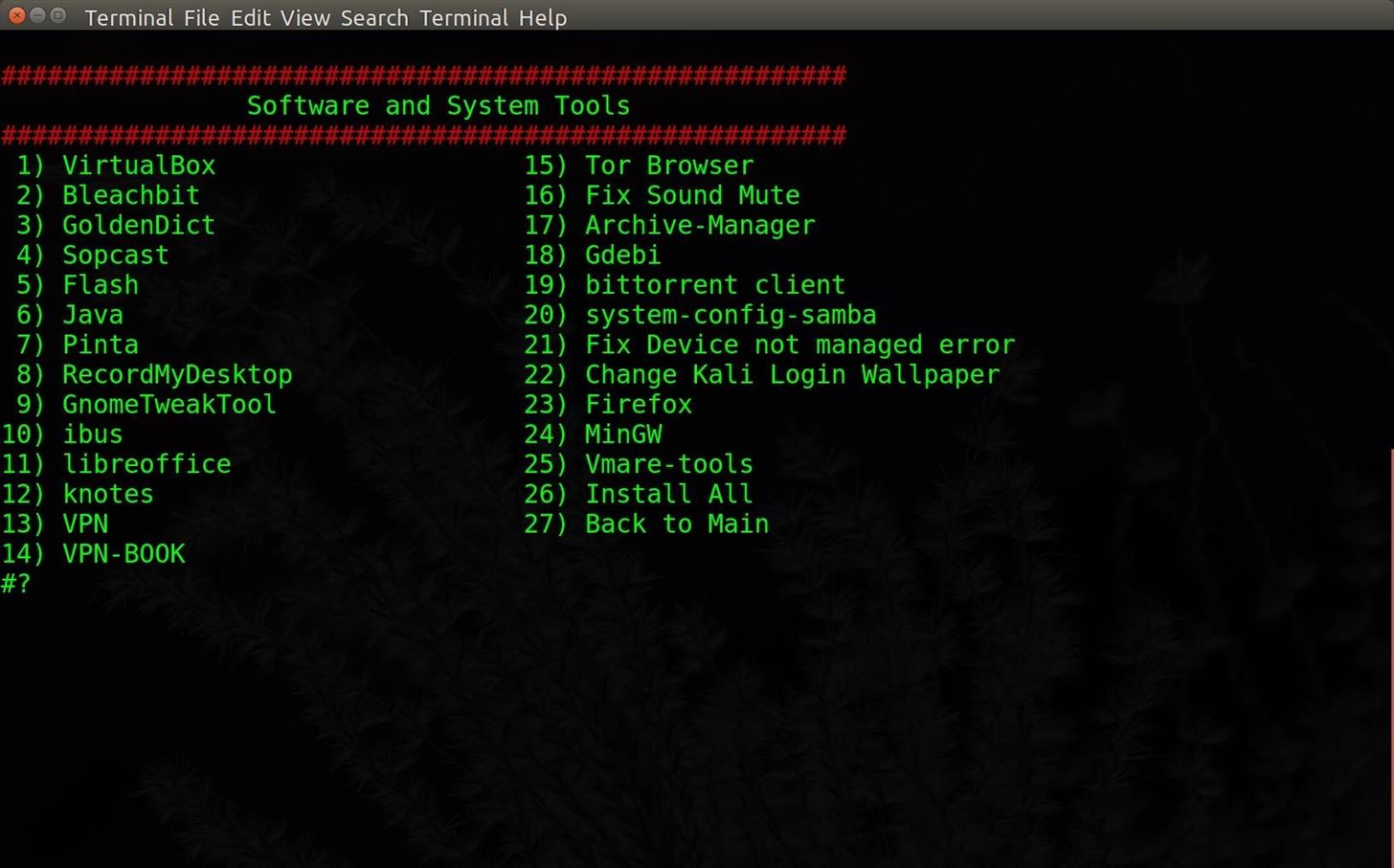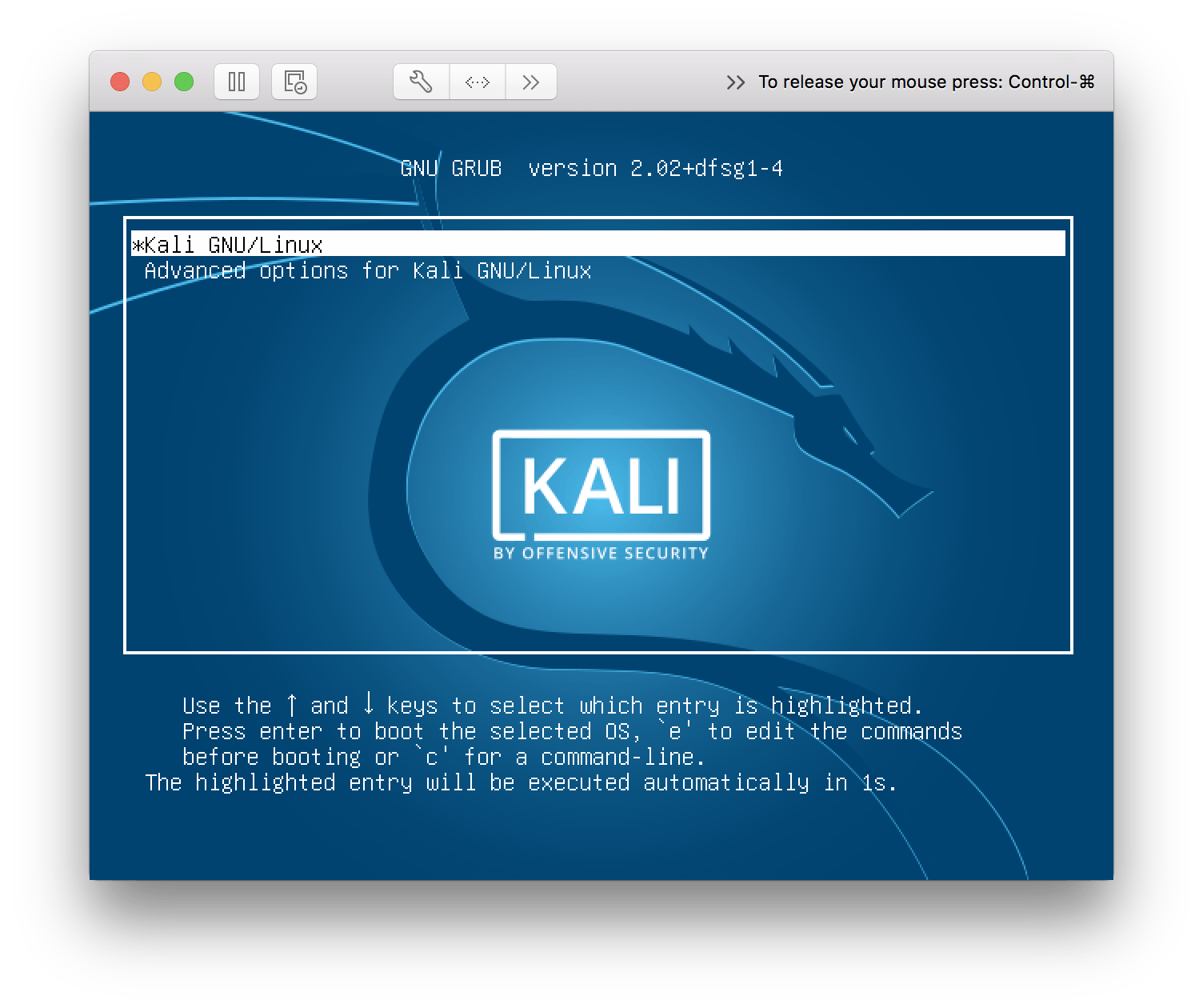

#Downloaded kali linux on mac file spy install
You can install Kali Linux via ready-made iso image files. You would already find most of the security tools that need to be pre-installed readily available at your disposal. It's a good starting point to be able to learn more about cybersecurity and penetration testing. If you're looking to get into ethical hacking or plan to use it for work-related applications, though, then Kali Linux is one of the best options available to you. As such, you'll mostly be operating them with a terminal via command lines. Most Kali programs don't offer any kind of graphical user interface. If this is your first foray into Linux operating systems, Kali Linux is not a good option to start with, mainly due to its steep learning curve. Who is Kali Linux for?īefore diving in, there are some things that you should consider first. This is often in relation to cybercrime, or computer crime, wherein victims were the target of hackers for extortion, financial fraud, or online harassment. In addition, Kali Linux is also often used for digital forensics, a branch of forensics science that entails the recovery and investigation of data found on digital devices like computers and other smart gadgets in modern society. It comes pre-installed with a set of advanced tools, including Nmap, Aircrack-ng, and Wireshark, to help conduct these tests effectively. Penetration Testing, sometimes referred to as "ethical hacking," is a simulated cyberattack that is done on a computer to be able to test out its security measures and identify possible vulnerabilities that real-life hackers could take advantage of. Instead of being a viable desktop OS replacement, though, its focus is more on penetration testing and cybersecurity research. Kali is based on Debian, another Linux distribution that has been a popular choice for consumer-level use. This means using or | statements within the pattern, it gets quite long so if your log file is not getting any false positives you might just stick to a simpler pattern.Kali Linux is an open-source project that is currently being maintained and funded by Offensive Security, a provider of world-class penetration testing services and information security training. You have to account for the fact that the max number is 255 in each octet position. If you want an even more accurate regex pattern to match an ip address, it gets quite complex and lengthy.



Here are a few regular expressions that can be used to match IP addresses in a log file (note I have taken out some of the escaping): Other regex patterns to match an IP addressĪs I mentioned the pattern we are using above is not perfect, but it works pretty well and is reasonably easy to understand. Pretty handy right? It works great for counting or finding ip addresses in nginx, apache or any kind of log files with ip addresses. The above will put them in order from least to greatest, you can pipe the result to tail if you only want to see the top N IP addresses! The ip counts are not in order, so we can pass our results through sort again, this time with the -n flag to use a numeric sort. This will output something like: 7 10.0.0.30 Now we can use the -c flag for uniq to display counts: grep -o "\+\.\+\.\+\.\+" httpd.log | sort | uniq -c Show me the number of times each IP shows up in the log We can do that with the sort command, like so: grep -o "\+\.\+\.\+\.\+" httpd.log | sort | uniq We can use the uniq command to remove duplicate ip addresses, but uniq needs a sorted input. How can I find unique ip addresses in a log file? You just need to come up with a regular expression to match an IP, I'll use this: "\+\.\+\.\+\.\+" it's not perfect, but it will work. This feature turns out to be pretty handy, let's say you want to find all the IP addresses in a file. This tells grep to only output the matched pattern (instead of lines that mach the pattern). I've been using grep to search through files on linux / mac for years, but one flag I didn't use much until recently is the -o flag.


 0 kommentar(er)
0 kommentar(er)
